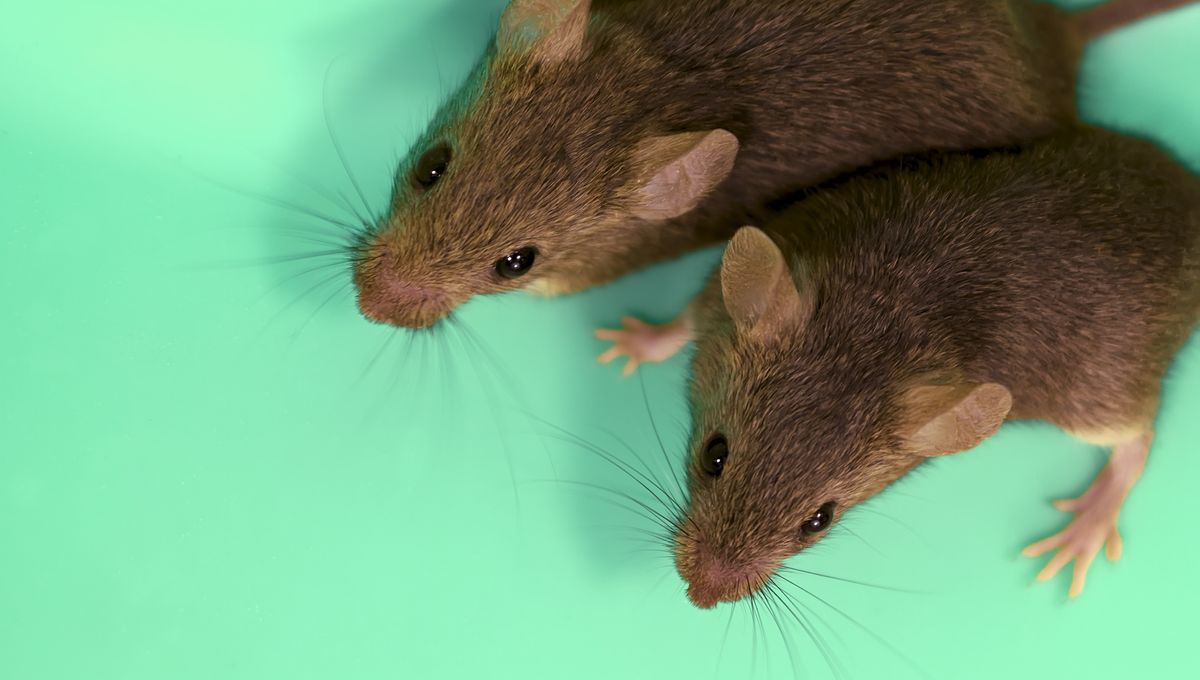
In a world first, scientists have created mice with two fathers, capable of having offspring of their own. It’s a huge step forward for our understanding of mammalian reproduction, and could, in theory, have implications for us humans – though this is still a long way off becoming reality.
Led by Yanchang Wei of Shanghai Jiao Tong University in China, the team injected two sperm cells into an empty egg, before using epigenome engineering to reprogram the sperm DNA, allowing an embryo to develop. Over 250 embryos were implanted in female mice, but only two – both male – survived to adulthood. It may be a low success rate, but both mice were fertile and fathered further offspring, something that has never been achieved before.
Previously, researchers have created mice with two mothers; however, attempts to do the same for mice with two fathers have been less successful. The embryos develop until a point, but eventually stop growing, hindered by a process known as genomic imprinting. This happens when certain maternal or paternal genes are shut down during development, and it is a fundamental barrier to unisexual reproduction in mammals.
However, research earlier this year was able to overcome some of these hurdles. Using a CRISPR/Cas9-based gene editing technology to target genes responsible for imprinting, a separate team created the world’s first bi-paternal mice that survived to adulthood.
“This research is fundamental science, and while gene editing of this nature is not applicable to humans, the key takeaway is that our study provides insight into the genetic barriers of unisexual reproduction in mammals,” co-corresponding author Zhi-kun Li of the Chinese Academy of Sciences told IFLScience at the time.
It marked a significant breakthrough in the field, with the potential to impact many areas of science, from regenerative medicine and cloning to conservation, but there was still a long way to go. More than half the mice failed to mature, and for those that did, their survival rate was relatively low. Most that made it to maturity had altered growth and a shortened lifespan, and all of them were sterile.
Plus, this sort of genetic modification, while useful for studying imprinting in lab animals, would not translate to humans. Instead, Wei and his team took an epigenetics-based approach, combining two sperm cells into an egg cell with its nuclear material removed, before remodeling seven imprinting control regions in the sperm DNA.
Epigenetics is the study of changes that affect gene expression without actually altering the DNA sequence. These modifications can affect how our bodies “read” a DNA sequence, effectively turning genes “on” and “off”.
The researchers tinkered with CRISPR proteins so that instead of editing genes as they usually would, they added or removed epigenetic markers called methyl groups. When added at the right place on the DNA molecule, these groups can prevent proteins from binding to, and therefore “reading”, the DNA.
Once the epigenetic editing was complete, the embryos were transplanted into a female mouse, giving rise to two fertile mice that were normal in size and appearance and grew to adulthood, eventually fathering their own offspring.
“Our findings, together with previous achievements of uniparental reproduction in mammals, support previous speculation that genomic imprinting is the fundamental barrier to the full-term development of uniparental mammalian embryos,” the study authors write.
So, what does this mean for human reproductive research? By bypassing the need for genetic modification, epigenome editing could make the leap to our species, propelling us closer to enabling same-sex couples to have genetic children – but the emphasis here is firmly on the could. We’re nowhere near that coming to pass, if it’s even possible, and experts are suitably cautious.
“While this research on generating offspring from same-sex parents is promising, it is unthinkable to translate it to humans due to the large number of eggs required, the high number of surrogate women needed, and the low success rate,” Christophe Galichet at the Sainsbury Wellcome Centre in the UK told New Scientist.
Regardless, the new work enhances our understanding of reproduction and imprinting in mammals – a feat that’s not to be sniffed at.
The study is published in PNAS.
Source Link: World First: Mice With 2 Dads Father Their Own Offspring